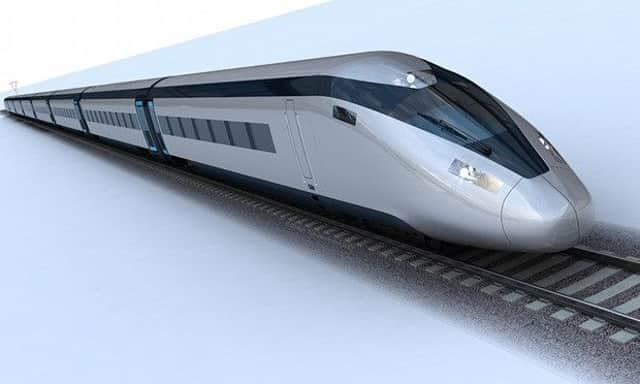Steeple Claydon resident in dispute with HS2 over land access


The high-speed rail line builders are planning on re-routing a road through a section of Mr Higgins’ field, and running some electricity lines underneath.
Problems began when the plans failed to include safe access to Mr Higgins’ farm, prompting him to petition Parliament’s select committee with an alternate route – a venture he believed to have been a successful one.
Advertisement
Hide AdAdvertisement
Hide AdMr Higgins said: “I came away from the select committee thinking OK, that’s sorted out.
“Then of course the select committee was disbanded and HS2 came back and said well we looked at it but we won’t change it.”
This paper spoke to HS2 and they said that while they have agreed a price for Mr Higgins’ land, all options were still on the table.
The Department for Transport’s response to the March 2016 select committee states: “The promoter is committed to providing a safe and effective means of providing access for Mr Higgins and will continue to refine proposals during detailed design.”
Advertisement
Hide AdAdvertisement
Hide AdMr Higgins is also concerned about the details of the maintenance agreement – called an easement agreement - to electricity lines that will run through his land, particularly in light of the fact that he runs a rehoming centre for Rhodesian Ridgebacks – large dogs that could pose a risk to workmen.
He claims that HS2 are refusing to show him the terms of the agreement.
Mr Higgins asked, “how do I agree it then?,” adding, “what’s going to happen if one of our dogs takes a lump out of one of the contractors?”
In a statement to this paper, an HS2 spoksman said: “As part of our commitment to him, and the due process we adhere to, we drafted and shared an easement agreement with Mr Higgins’ agent earlier this week, and believe that progress is being made.”
Advertisement
Hide AdAdvertisement
Hide AdAt the time of writing, Mr Higgins says he has not been shown the agreement.
HS2 are building 345 miles of new high-speed track which will connect the city centres of London, Birmingham, Manchester, and Leeds.
The benefits of the so-called bullet trains will include cutting journey times in half, with it being possible to get from London to Manchester in little over an hour.
Work is just starting to get underway and will be completed in 2033.
Advertisement
Hide AdAdvertisement
Hide AdThough the cost was originally projected to be £32.7bn in 2010, it is now estimated to exceed £50bn.
The scheme has long divided opinion between those seeing the benefits of high-speed connectivity and others viewing it as an unnecessary vanity project that will be unaffordable to many and will impose an intolerable burden on the countryside and the home owners and landowners in its path.